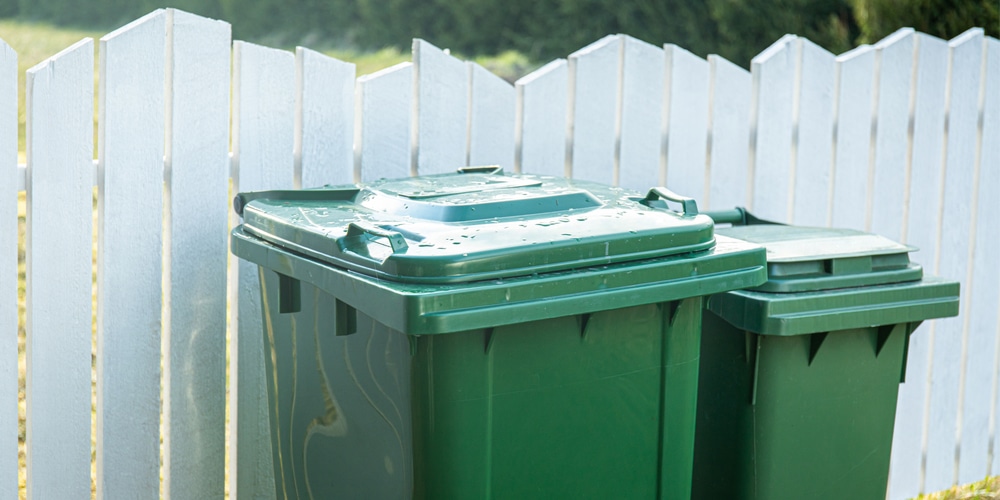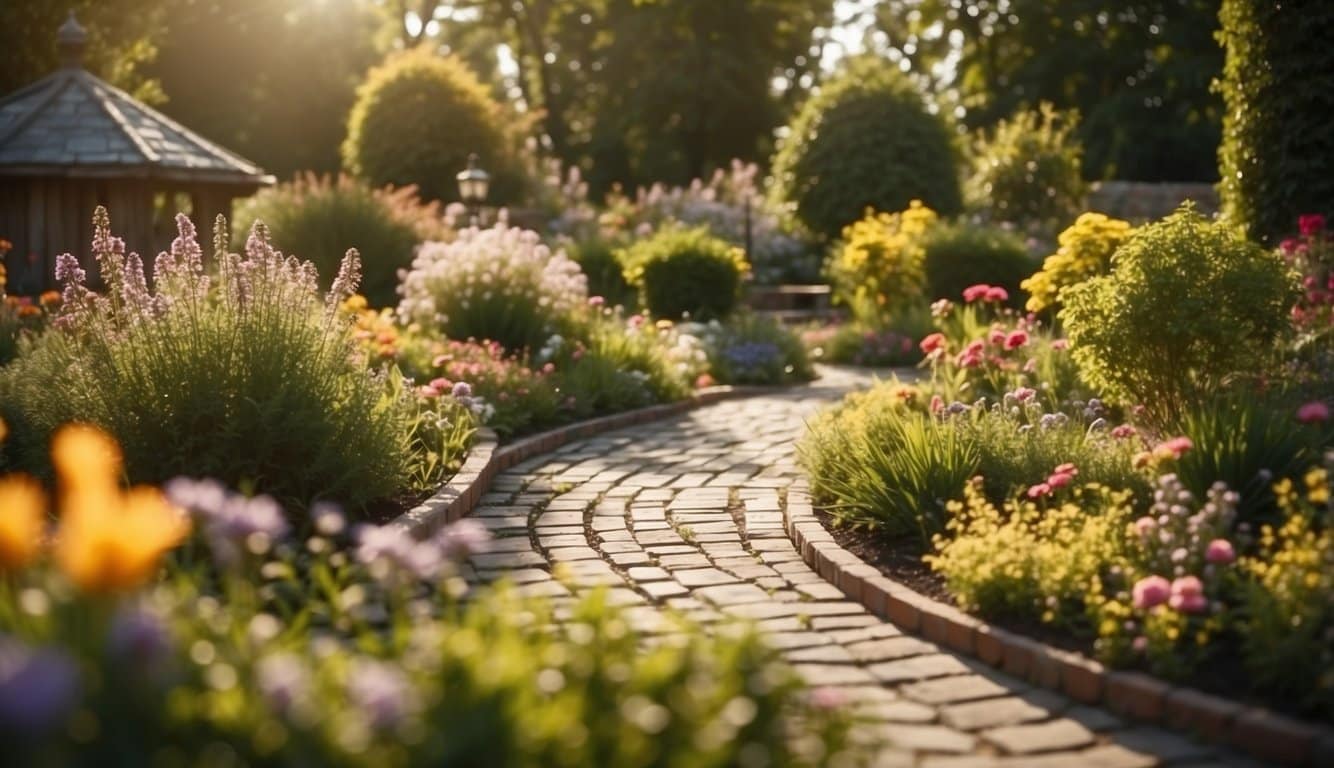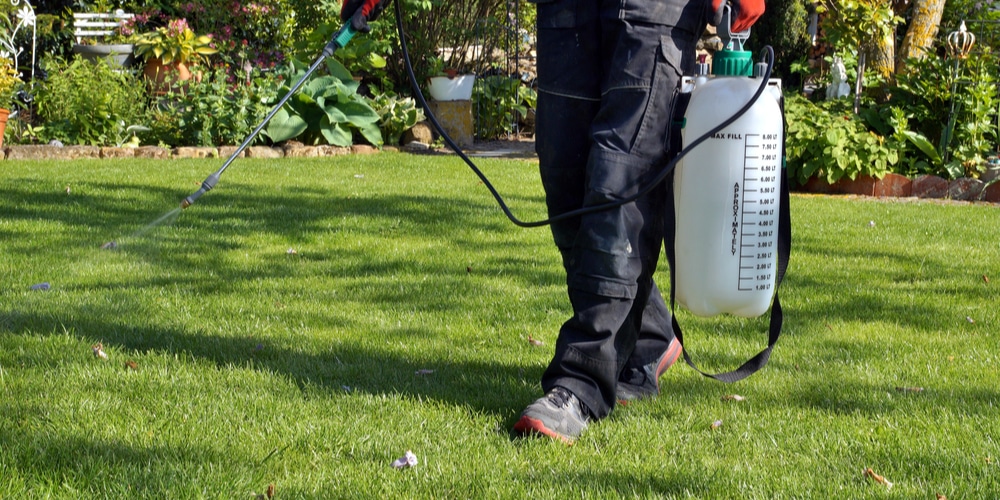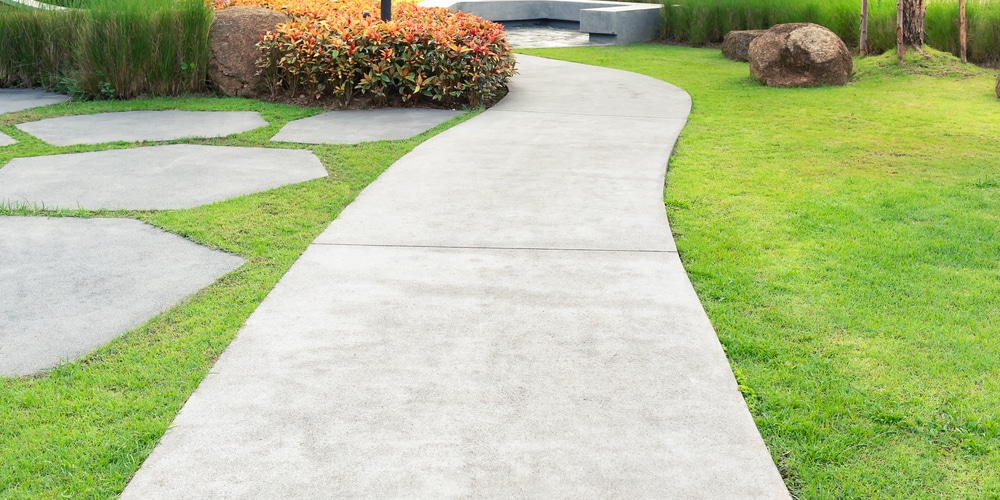Getting Rid of Flies Outside: A Step By Step Guide

Step 1: Identify Attraction Sources
- Question: Are there specific sources attracting flies to your yard (e.g., pet waste, garbage, compost)?
- Yes: Proceed to eliminate or manage these sources.
- No: Consider broader control methods.
Step 2: Manage Attraction Sources
- Action: Reduce the attractiveness of your yard to flies.
- Methods:
- Garbage Management: Seal garbage bins tightly and keep them clean to prevent odors.
- Pet Waste: Clean up pet waste promptly.
- Compost Practices: Cover compost piles or use a closed compost bin.
- Methods:
Step 3: Use Fly Traps
- Question: Would you like to use traps to reduce fly populations?
- Yes: Set up appropriate fly traps.
- Types of Traps:
- Sticky Traps: Hang in areas where flies are most active.
- Baited Traps: Use commercially available or homemade baited traps.
- UV Light Traps: Effective at night for attracting and killing flies.
- Types of Traps:
- No: Focus on other methods.
- Yes: Set up appropriate fly traps.
Step 4: Apply Fly Repellents
- Question: Do you want to use repellents around seating areas or entrances?
- Yes: Choose suitable fly repellents.
- Natural Repellents: Use citronella candles, essential oil diffusers (e.g., eucalyptus, peppermint), or plants that repel flies like marigolds and basil.
- Chemical Repellents: Consider using outdoor fly repellent sprays following safety instructions.
- No: Continue with non-repellent strategies.
- Yes: Choose suitable fly repellents.
Step 5: Install Physical Barriers
- Action: Prevent flies from entering specific areas.
- Methods:
- Screens: Use mesh screens on windows and doors.
- Curtains: Install mesh curtains around patios or gazebos.
- Methods:
Step 6: Maintain Yard Cleanliness
- Action: Keep your outdoor areas clean.
- Yard Care:
- Lawn Maintenance: Mow lawn regularly to prevent tall grass where flies might breed.
- Remove Standing Water: Eliminate sources of standing water to discourage breeding.
- Yard Care:
Step 7: Enhance Natural Predation
- Action: Encourage or introduce natural predators.
- Options:
- Birds: Install bird feeders to attract fly-eating birds.
- Beneficial Insects: Consider introducing or fostering habitats for beneficial insects like ladybugs and dragonflies.
- Options:
Step 8: Evaluate and Adjust
- Routine Actions:
- Monitor: Regularly check the effectiveness of the implemented strategies.
- Adapt: Adjust methods and strategies as needed based on fly activity and effectiveness of current measures.
Step 9: Consult a Professional
- Question: Are flies still a significant problem despite these efforts?
- Yes: It may be beneficial to consult a professional pest control service.
- No: Continue with effective measures and regular monitoring.
Additional Tips
- Regularly inspect and clean outdoor dining areas, as food residues can attract flies.
- Consider using a fan in outdoor areas; the air movement helps keep flies away.
Preventing Fly Invasions
Before diving into your next outdoor get-together, take note of these strategic tactics to prevent fly invasions. This ensures your space remains comfortable and fly-free.
Landscape Management
- Trim Vegetation Regularly: Keep bushes and trees well-trimmed to eliminate fly hiding spots and breeding grounds.
- Standing Water: Eliminate all sources of standing water, from rain gutters to plant saucers, to prevent flies from laying eggs.
Proper Garbage Disposal
- Seal Your Bins: Ensure that your garbage bins have tight-fitting lids to contain both the scent and access to waste.
- Routine Cleaning: Regularly clean your bins and the area where they’re stored to deter flies, using hot water and disinfectant.
Natural Repellents
- Plant fly-repelling plants like lavender, marigold, and basil around your outdoor areas.
- Place DIY traps strategically around, with bait like sugar water to lure and trap flies away from your relaxation zones.
DIY Trap Concoctions
Creating your own traps to combat the pesky fly problem in your backyard can be both effective and satisfying. Here’s how you can mix up some potent DIY concoctions that will turn the tables on those bothersome flies.
Sugary Traps
Flies can’t resist the allure of something sweet and sticky. Here’s a quick method to prepare a sugary trap:
- Mix water, sugar, and a small amount of dish soap in a bowl.
- Stir thoroughly until the sugar is completely dissolved.
- Soak strips of paper or a sponge in this mixture.
- Hang the soaked items where flies are prevalent.
Pro Tip: Place these traps away from your sitting area to draw flies elsewhere.
Vinegar Solutions
Vinegar, particularly apple cider vinegar, acts as a powerful fly attractant due to its fermented scent, which flies find irresistible. Below is how you can harness its power:
- Vinegar and Dish Soap Trap:
- Pour apple cider vinegar into a tall glass until it’s about one-inch deep.
- Add a few drops of dish soap and mix gently.
- Cover the glass with plastic wrap and poke small holes in it.
- Vinegar and Fruit Trap:
- Slice a piece of overripe fruit and place it in a bowl.
- Pour apple cider vinegar over the fruit, enough to cover it.
- Stretch plastic wrap over the bowl and secure it with a rubber band.
- Punch small holes through the plastic to allow flies to enter.
Remember, check and replace your DIY traps regularly to maintain their effectiveness.
Commercial Fly Control Solutions
When that buzzing becomes unbearable and the outdoor fun is on the verge of being spoiled, you’ll find that commercial fly control solutions are your go-to allies. They pack a punch against those pesky invaders!
Electric Zappers
Indisputably, electric zappers come in as a fan-favorite for their ‘set-and-forget’ convenience. Here’s how they can benefit your fly-free aspirations:
- Zap Instantaneously: As soon as a fly comes into contact, it’s game over.
- Covers Ample Area: Many models are designed to handle significant outdoor spaces, keeping your BBQs peaceful.
One such effective solution can be found with DynaTrap’s zappers, which offer coverage for larger areas, making them ideal for keeping your porch or backyard free of flies.
Chemical Sprays
For a more direct approach, chemical sprays target flies with precision and potency:
- Quick Action: The fast-acting formula ensures flies are dealt with swiftly.
- Targeted Application: Directly apply to the fly-infested areas without affecting the rest.
Outdoor Fly Deterrents
Flies buzzing around can ruin your outdoor fun, but with a couple of savvy strategies, you can send those pests packing. From essential oils to strategic plantings, let’s explore how to keep those winged annoyances away.
Essential Oils
You might adore the aromatic bliss of essential oils, but flies? Not so much. They’re a fantastic natural repellent. For best results:
- Lavender Oil: Dilute with water and spray around your patio.
- Peppermint Oil: Apply a few drops on cotton balls and place them strategically around outdoor areas.
Herbal Plantings
Transform your garden into a no-fly zone with these plants:
- Basil: Detests flies and serves as a culinary herb.
- Lemongrass: Contains citronella, a natural fly deterrent. Plant it in pots for a movable barrier.
- Mint: Spread this around to keep flies at bay. Bonus: It makes a refreshing addition to your drinks!
Fly Control Through Maintenance
Ensuring you have a fly-free zone outdoors starts with careful attention to your property maintenance. Let’s break this down into the essentials: cleaning routines and water source management that can significantly decrease fly populations.
Regular Cleaning Routines
- Empty and Clean Trash Bins: Flies are attracted to garbage. Make sure you regularly empty your trash bins and clean them with hot water and disinfectant to minimize odors that lure flies.
- Clear Away Food Waste: After barbecues or outdoor eating, promptly clear away food waste. Use sealed compost bins for organic leftovers.
Water Source Management
- Eliminate Standing Water: Stagnant water is a breeding ground for flies. Inspect your yard for standing water and drain or remove it. Consider filling in low areas in your yard where water may accumulate.
- Maintain Pools and Ponds: If you have a pool or pond, keep it chlorinated and filtered. A clean, circulating water system discourages flies from laying eggs.
Frequently Asked Questions
When flies start buzzing around ruining your outdoor vibes, it’s time to take action. These common questions guide you through various strategies to keep those pesky insects at bay.
What home remedies help in repelling flies outdoors?
- Grow herbs like basil, lavender, and mint that naturally repel flies.
- Hang clear plastic bags filled with water; the light reflections can deter flies.
What methods work best for getting rid of flies swarming around my house?
- Set up outdoor fly traps to capture them.
- Make sure to eliminate standing water and seal garbage bins which attract flies.
How can I effectively keep flies away from my outdoor gatherings?
- Use fans to create a breeze that keeps flies from comfortably landing on your food.
- Consider using smoke from citronella candles as a natural deterrent.
What natural solutions are available to deter flies from my patio or backyard?
- Encourage the presence of birds or bats that prey on flies by installing houses for them.
- Apply a spray made from natural ingredients like cayenne pepper or essential oils.
How can vinegar be used to combat outdoor fly infestations?
- Create a vinegar trap by mixing apple cider vinegar with a few drops of dish soap in a bowl and leaving it outside.
Are there any quick solutions to decrease the presence of flies outside immediately?
- Hang sticky fly paper in areas where flies are most active.
- Regularly clean pet waste and cover compost piles to cut down on immediate attractions.
Last update on 2025-04-18 / Affiliate links / Images from Amazon Product Advertising API







